Arts Education Week. Arts education and the world of the future.
Article published on 31-05-2020Editorial
There is a mysterious and profound relationship between children and art. A connection so sincere and direct that some of the greatest artists wanted to express it: "I would like to make paintings that look as if they were made by a child," said the great Jean-Michel Basquiat. It is important that modern education encourages this deep connection, because in it are still unknown reserves of creativity, imagination and courage of thought that humanity needs more than ever.
Modernity has brought important advances in technology and science, it founded on reason and calculation economics, social management systems, it has taken man into space and the microscopic universe, but all these are the result of the creative spirit and have been inspired and accompanied by art in each step. Space travel was imagined in literature long before man stepped on the moon; the anxieties and aspirations of the human spirit, scientifically studied today, have been expressed in the visual arts for centuries; mathematics and music were seen as two faces of the same reality by some of the most brilliant minds of mankind, from the Pythagoreans to Einstein; digital technologies have found some of the most popular applications in the field of arts and have even established new forms of artistic expression.
This fertile and necessary connection between the arts and the human mind risks being forgotten in our pursuit of efficiency, in a world that increasingly associates reason exclusively with science, in which technology tends to be perceived as the only path to success. In the name of these commandments, too many education systems in the world tend to abandon the arts as a subject of study or as a method of individual development, thus impoverishing not only culture and society, but the human being itself. Continuing on the path of giving up the artistic dimension in education we risk blocking our own development, because, paradoxically, the progress of science and new technologies, inventiveness in managing social problems, international imbalances, various forms of inequity in today's world can be enhanced precisely by the way in which the arts are integrated in the horizon of contemporary man.
Creativity is ensured when all forms of creativity are released and encouraged, which is why art education is essential for cultivating the original imagination and thinking of young generations. Personal balance and collective balance can only be achieved by nurturing all human needs and encouraging all forms of thought expression, when children and young people are given the chance to discover the world by all means of intelligence and sensitivity, and to discover themselves as complex personalities.
We want a world of peace: what better land to meet the cultures of the world than the arts? From the "West-Eastern Divan Orchestra", in which the visionary thinking of Daniel Barenboim and Edward Said brought together, in perfect harmony, musicians from all over the Middle East, to the great international performing arts festivals, in which dancers, actors, directors meet without prejudice in Berlin or Hong Kong, in Oslo and Los Angeles, in Sibiu or in Kerala, the arts have already proved to be the ground on which conflicts can be overcome.
We want a world of communication and progress: how many of the great modernization projects do not start in the field of arts? The Louvre lends its name and works to the new and seductive museum foundation in Abu Dhabi, the international art scene is changing thanks to museums in Cape Town, Marrakech or Dakar, cinema has placed Nigeria on one of the first places in the world in the film industry. Investing in the arts around the world has brought success, self-confidence and respect for the international community.
We want a world in which the human being is fulfilled and happy: how could such a desideratum be achieved if the arts were missing from our lives? As a form of expression of individuality, accompanying the most important moments in the life of each of us, a source of collective pride, a favorite means by which we share our personal stories with the rest of the world, music, theater, visual arts, fashion, design, cinema create the framework in which we live our lives.
The great challenge that art education must meet in this century of Artificial Intelligence and space exploration is the one that Picasso discovered almost a century ago: “Every child is an artist. The problem is to stay that way once you become an adult.” With every limit of reality and imagination that he overcame, man was stimulated and accompanied by artistic creativity. For those who follow, it will not be otherwise, and artistic education is the way in which we can ensure that the progress obtained is a progress of humanity, not a form of dehumanization. How can we give up art education without giving up on ourselves?
Daniela Zaharia
Secretary - General
National Commission of Romania for UNESCO



